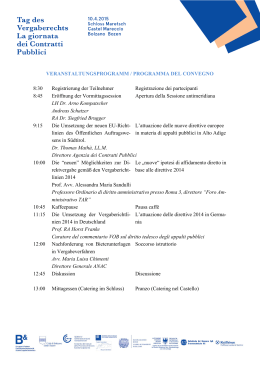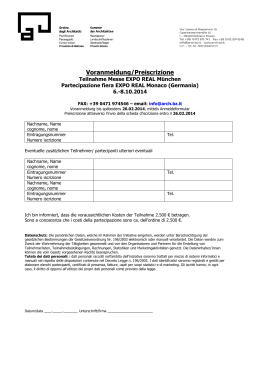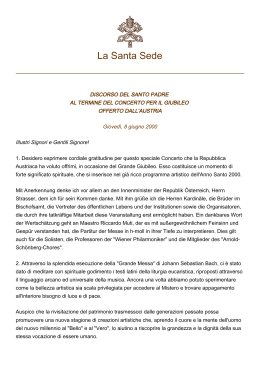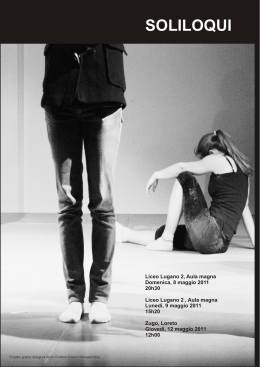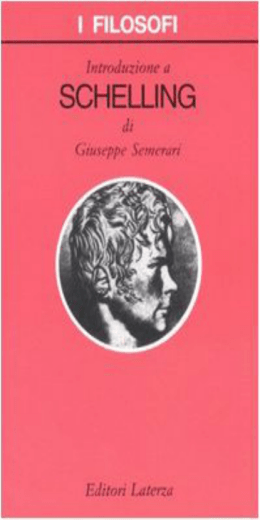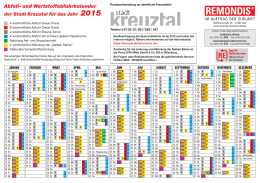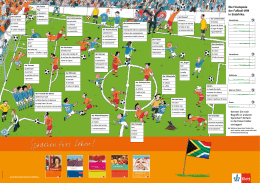TENOR ARIAS DDD 8.555920 Amore, sublime amore Il Trovatore • Otello • Der Rosenkavalier • Turandot ˆ Janez Lotric, Tenor Ukrainian National Opera Symphony Orchestra • Johannes Wildner Tenor Opera Arias Verdi • Glinka • R. Strauss • Rossini • Adam • Giordano • Puccini It was at the initial request of the tenor Enrico Tamberlick, the first Alvaro, that Giuseppe Verdi was persuaded to return to work to write his opera La forza del destino for the Russian Imperial Theatre. This was given its first performance in St Petersburg in November 1862, but is now generally heard in a revised version that was first staged at La Scala, Milan, in 1869. The plot, later modified, is one of some complexity, derived from a play by the Duke of Rivas. Don Alvaro is in love with Leonora, but accidentally kills her father, leading to a long search for revenge by her brother, Don Carlo. Leonora, believing her lover dead, retires to a hermitage, and Don Alvaro to a neighbouring monastery, the revelation of their final meeting coinciding with the appearance of Don Carlo, his death at the hands of a reluctant Don Alvaro and his final murder of Leonora, as he dies. The Act III recitative and aria, Qual sangue sparsi, from the first version of the opera, is heard after Don Alvaro, on campaign with Don Carlo, where the two have hitherto failed to recognise each other, engages in a duel with the latter, apparently killing him, an outcome that he can only bitterly regret. The libretto of Verdi’s opera Il Trovatore was also derived from a Spanish play, the work of Antonio García Gutiérrez. It was first staged in Rome in January 1853. The plot again concerns love and revenge. Manrico, the troubadour of the title, supposed son of the gypsy Azucena and in the service of Count Urgel, is in love with Leonora, who is also loved by the young Count Di Luna, a supporter of the Prince of Aragon. Their rivalry ends in the defeat and capture of Manrico by the Count. Leonora offers herself to the Count in return for Manrico’s life, taking poison, in order to outwit him. In the event she dies and Manrico is put to death, leaving Azucena, from her prison, to reveal that Manrico was in fact the Count’s brother. In the third act Manrico is in possession of the fortress of Castellor, where he plans to marry Leonora, although the place is likely to be attacked by the Count Di Luna. Something 8.555920 of this threat is inherent in Leonora’s ominous Di qual tetra luce, a light that is actually and figuratively gloomy. Manrico assures her that if he must die, he will die with her name on his lips. A period of six years followed Verdi’s Egyptian opera, Aida, and it was only then that he turned his attention again to Shakespeare in Otello, first staged at La Scala in February 1887. By Act III Iago has succeeded in arousing Othello’s jealousy. In Datemi ancor l’eburnea mano, Othello takes Desdemona’s hand, anxious to find out whether Iago’s story of the handkerchief that he had given her is true. His jealousy can only increase and in Act IV he murders his wife in her bed-chamber, only to learn that his suspicions of her were groundless. When all is revealed, it is only left for him to die by his own hand, sealing his love of his dead wife with a kiss. Set originally in Sweden and dealing with the murder of Gustav III, Un ballo in maschera, first performed in Rome in February 1859, was transferred, thanks to the censors, to America. There Riccardo, Governor of Boston, falls in love with Amelia, the wife of his mulatto secretary, Renato, who kills him, in spite of their friendship and his earlier unswerving loyalty and unwillingness to conspire against him. The third Finale opens in Riccardo’s study, where he drafts an order for Renato, with Amelia, to return to England, a paper that, ironically, he will show to Renato only after the latter has stabbed him during the masked ball with which the opera reaches a final climax. Mikhail Glinka’s heroic tragedy A Life for the Tsar was the first nationalist Russian opera, staged in St Petersburg in 1836. Set in Russia and Poland in 1613, it centres on the heroic exploits of Ivan Susanin in the aftermath of the defeat of Boris Godunov by the socalled false Dmitry, with Polish support. The peasant Susanin succeeds in diverting the Polish forces, who are in pursuit of the newly elected Tsar, Mikhail Romanov, leading them astray until the young Tsar has been able 2 to escape. In the fourth act Sobinin, who is to marry Susanin’s daughter, leads a band of peasants in the forest at night, and encourages them in Brothers, into the snow-storm. Susanin is finally successful in his protection of the Tsar, but is killed for it, his heroism to be remembered by the Tsar and by future generations. The nostalgic Der Rosenkavalier by Richard Strauss is set in the first years of the Empress Maria Theresia. The opera was first performed in Dresden in 1911. The plot centres on the Feldmarschallin, her love for the young Octavian, later the knight of the rose of the title, and the sacrifice she makes when she allows and encourages Octavian’s love for Sophie, daughter of a rich parvenu, on whose money the Feldmarschallin’s uncouth cousin, Baron Ochs, has set his heart. At her levée the Princess is attended by a number of people, including an Italian singer, whose song of love, Di rigori armato il seno has a charm of its own and some relevance to the plot. Gioachino Rossini’s last opera was Guillaume Tell, written for Paris, where he had settled, and also familiar in an Italian version. It was first performed at the Paris Opéra in August 1829. The action is set in thirteenthcentury Switzerland, where the young Swiss patriot Arnold, in love with the Austrian noblewoman Matilde, seeks revenge for the death of his father through a rising against Austrian domination of his country. In Act IV Arnold, standing outside his father’s house, laments his father’s fate and realises that, with William Tell captured by the enemy, it is he who must lead the conspirators. Adolphe Adam’s opera Le postillon de Lonjumeau had its first performance at the Paris Opéra-Comique in 3 October 1836. The unlikely story deals with the rise of the coachman, Chapelou, to the position of principal tenor at the Paris Opéra, after the Marquis de Corcy, director of the Opéra, has overheard his remarkable song about the postilion of Lonjumeau, Mes amis, écoutez l’histoire, with its top Ds in imitation of the post-horn. Chapelou deserts his new wife, Madeleine, on their wedding night to embark on his new career, leading her to take her revenge ten years later, when she inherits money and appears under a very different guise in Paris. Set in revolutionary Paris, Umberto Giordano’s Andrea Chenier, first given at La Scala in March 1896, centres on the poet of the title, his association before the Revolution with the noble family of Madeleine de Coigny and their love during the Terror, to which Chénier falls victim through the actions of his rival in love, Gérard, a former family servant. He sings his new poem, Come un bel dì di maggio, in prison, as he awaits execution. Giacomo Puccini’s last opera, Turandot, unfinished at the time of his death in 1924, had its first performance at La Scala in 1926. The Chinese princess of the title poses riddles to her suitors, who suffer death when they fail to solve them. Calaf, son of the exiled King of Tartary, answers Turandot’s riddles, but then offers to stake his life on the discovery of his name. It is proclaimed that none shall sleep, until the stranger’s name be found, and in Nessun dorma Calaf expresses his confidence in victory over the icy-hearted princess, an outcome finally achieved. Keith Anderson 8.555920 Janez Lotric̆ Born in Slovenia, Janez Lotric̆ studied at the music academy in Ljubljana, making his opera début at the Maribor opera house as Nemorino in Donizetti’s L’elisir d’amore. While growing into the dramatic tenor repertoire, Janez Lotric̆ always kept his splendid easy top range. He has appeared at all the leading opera houses of Europe, including the Vienna State Opera, La Scala, Milan, the Deutsche Oper Berlin, Opéra-Bastille in Paris, Royal Opera of Covent Garden and the opera houses of Madrid, Rome, Hamburg and Zurich. His huge stage repertoire includes rôles such as Tonio in La fille du régiment, Calaf, Cavaradossi, Canio, Turiddu, Manrico, Arrigo in I vespri siciliani, Don Alvaro, Radames, Don José, Hoffmann, Arnoldo in Guillaume Tell, Bacchus, Florestan, and Alfred in Die Fledermaus. Kiev Municipal Chamber Choir The Kiev Municipal Chamber Choir was founded in December 1990, with members that include professional singers, and graduates of conservatories and musical institutes throughout Ukraine. The Musical Director, Mykola Hobdych, studied at the Kiev Tchaikovsky Conservatory. The national and international repertoire of the choir ranges from the medieval to the contemporary, and critically acclaimed performances have been given in major concert halls in the United States and throughout Europe. 8.555920 4 National Opera Symphony Orchestra of Ukraine The National Opera Symphony Orchestra of Ukraine was established in 1834 as the Symphony Orchestra of the Kiev City Theatre and has a long history and deep cultural traditions. Tchaikovsky visited Kiev specially for the performances of his operas The Oprichnik, Eugene Onegin and The Queen of Spades, and in 1891 he also conducted a concert of his own works. The orchestra was also conducted by Rimsky-Korsakov, Rachmaninov, Glazunov and Gliere, while there was collaboration with well-known musicians such as Shalyapin, David Oistrakh, and Emil Gilels. During the 1960s the orchestra took part in a performance of the opera Katerina Ismailova under the composer Dmitry Shostakovich, who described the performance as one of the best ever. From 1967 to 1973 and 1977 to 1988, the orchestra was headed by the famous Ukrainian conductor Stephan Turchak, who was responsible for some of the great successes of those years. Since Ukrainian independence in 1991, the orchestra has reached a new peak of artistic development under Volodymyr Kozhukhar, a pupil of Rozhdestvensky in Moscow and Artistic Director of Moscow City Opera from 1977 to 1988. As chief conductor of the National Opera Symphony Orchestra of Ukraine, he has appeared with distinction in performances of opera, ballet and the symphonic repertoire throughout Europe and as far afield as Japan. Johannes Wildner Born in Austria, Johannes Wildner studied conducting, violin and musicology. In 1994-95 he served as Chief Conductor of Prague State Opera, and from 1996 to 1998 was First Permanent Conductor of Leipzig Opera. Since 1997 he has been Generalmusikdirektor of the New Philharmonic Orchestra of Westphalia. He has appeared as a guest conductor of major opera houses, festivals and orchestras, including the opera houses of Graz and Leipzig, the opera festival Mozart in Schönbrunn in Vienna, the Royal Philharmonic Orchestra in London, the St Petersburg Philharmonic, the MDR-Symphony, the Vienna Symphony, the Vienna Radio Symphony, the Bruckner Orchestra in Linz, the Mozarteum Orchestra Salzburg, the New Zealand Symphony, the Taipei National Symphony and the China Philharmonic Orchestra. Johannes Wildner has recorded more than forty CDs and videos, including complete versions of Die Fledermaus and Così fan tutte, as well as Bruckner’s Third and Ninth Symphonies with the New Philharmonic Orchestra of Westphalia for Naxos. 5 8.555920 Tenor-Opernarien Verdi • Glinka • R. Strauss • Rossini • Adam • Giordano • Puccini Die Anregung zu La forza del destino (Die Macht des Schicksals) kam aus St. Petersburg von dem Tenor Enrico Tamberlick (dem ersten Alvaro), der dem Direktor der Kaiserlich-Russischen Oper vorgeschlagen hatte, bei Verdi eine italienische Oper in Auftrag zu geben. Die Uraufführung fand im November 1862 statt; heute wird gewöhnlich die revidierte Fassung gespielt, die 1869 an der Mailänder Scala über die Bühne ging. Die verworrene Handlung hat ihren Ursprung in einem Schauspiel des spanischen Autors Angelo Perez de Saavedra. Alvaro liebt Leonora und will mit ihr fliehen, tötet aber durch einen verhängnisvollen Zufall ihren Vater und wird in einem jahrelangen Rachefeldzug von ihrem Bruder Don Carlo verfolgt. Leonora glaubt ihren Liebhaber tot und geht ins Kloster; sie findet Zuflucht in den Bergen, wo sie verkleidet als Mönch unerkannt in einer einsamen Klause ihr Leben fristet. Auch Alvaro sucht nach Jahren der Flucht in derselben Gegend als Mönch seinen Seelenfrieden. Dort entdeckt ihn Don Carlo und fordert ihn in den Bergen zum Duell. Alvaro verwundet ihn tödlich. In dem herbeigerufenen Geistlichen erkennt der sterbende Don Carlo seine Schwester und tötet sie. Qual sangue sparsi, Alvaros Rezitativ und Arie aus dem dritten Akt der ersten Fassung, erklingt, nachdem Alvaro sich nach einer Zeit der Soldatenfreundschaft mit Don Carlo, in der sie ihre Identität voreinander verborgen halten, auf ein Duell mit seinem Todfeind einlässt, dessen Ausgang er bitter bereuen wird. Das Libretto von Verdis Il Trovatore (Der Troubadour) geht ebenfalls auf ein spanisches Schauspiel zurück, dessen Autor Antonio García Gutiérrez war. Die Uraufführung der Oper fand im Januar 1853 in Rom statt. Auch hier stehen Liebe und Rache im Zentrum der Handlung. Der Troubadour Manrico, der vermeintliche Sohn der Zigeunerin Azucena, liebt Leonora, die jedoch auch von dem jungen Grafen Luna verehrt wird. Die Rivalität der beiden Männer endet mit der Gefangennahme Manricos 8.555920 durch Luna. Leonora bietet sich dem Grafen, um Manrico zu retten, nimmt aber heimlich Gift, um Lunas Absichten auf sie durch ihren Tod zu vereiteln. Der Graf lässt Manrico zum Scheiterhaufen führen und Azucena Zeugin seines Todes werden. Als Manrico von den Flammen erfasst wird, schreit die Zigeunerin Luna ins Gesicht, dass Manrico sein Bruder war. Im dritten Akt hat der Troubadour die Festung Castellor eingenommen, wo er Leonora heiraten will, obwohl der Ort von Lunas Soldaten beschattet wird. Ein Gefühl der Angst spricht aus Leonoras Di qual tetra luce. Manrico verspricht ihr, nur mit ihrem Namen auf seinen Lippen sterben zu wollen. Nahezu zehn Jahre waren nach seiner ägyptischen Oper Aida vergangen, bevor sich Verdi mit Otello (nach Shakespeares gleichnamiger Tragödie) erneut einem Opernstoff zuwandte. Die Vorarbeiten begannen 1881, und 1887 fand schließlich die Uraufführung an der Mailänder Scala statt. Im dritten Akt der Oper hat Jago sein Ziel fast erreicht, Othello von der Untreue Desdemonas zu überzeugen. In Datemi anco l’eburna mano ergreift Othello ihre Hand; er will wissen, ob Jagos Geschichte von ihrem angeblich bei Cassio gefundenen Taschentuch, einem Geschenk Othellos, wahr ist. Immer stärker verfällt der Mohr seiner Eifersucht, bis er im vierten Akt Desdemona in ihrem Schlafgemach erwürgt – nur um zu erfahren, dass sein Verdacht unbegründet war. Es bleibt ihm nur, seine Liebe zu ihr mit einem letzten Kuss zu besiegeln und sich selbst den Tod zu geben. Die Handlung von Verdis ursprünglich in Schweden angesiedelter Oper vom Attentat auf König Gustav III., Un ballo in maschera (Ein Maskenball), wurde auf Einspruch der Zensur ins ferne Nordamerika verlegt. Dort verliebt sich Riccardo, der Gouverneur von Boston, in Amelia, die Gattin seines Sekretärs Renato. Trotz der Freundschaft der beiden verbündet sich Renato mit einer Verschwörergruppe und ermordet Riccardo auf einem Maskenball. Das zweite Bild des 6 dritten Akts spielt in Riccardos Arbeitszimmer. Der Gouverneur hat den schweren Entschluss gefasst, seinen Sekretär nach England zu versetzen; unverzüglich soll er mit Amelia abreisen. Das entsprechende Dokument, das Amelias Unschuld beweist, wird er später sterbend seinem Mörder übergeben. Michail Glinkas 1836 in St. Petersburg uraufgeführte heroische Tragödie Ein Leben für den Zaren war die erste nationalrussische Oper. Die Geschichte spielt in Russland und Polen im Jahr 1613 und handelt von den heldenhaften Taten des Bauern Iwan Sussanin nach dem Sieg des von Polen unterstützten sog. Falschen Dimitri über Boris Godunow. Sussanin gelingt es, die nach dem neugewählten Zaren Michail Romanow fahndenden polnischen Soldaten in ein unwegsames Waldgebiet zu führen und dort aufzuhalten, bis dem Zaren die Flucht gelingt. Im vierten Akt führt Sobinin, der Verlobte von Sussanins Tochter, eine Gruppe von Bauern nachts in den Wald und macht ihnen mit seiner Arie Bratsï! V metel’ (Brüder, in den Schneesturm!) Mut. Sussanin gelingt zwar die Rettung des Zaren, er selbst aber wird von den Polen getötet. Der Zar und das ganze Volk gedenken seiner ruhmreichen Tat. Richard Strauss’ 1911 in Dresden uraufgeführte Komödie für Musik Der Rosenkavalier, auf einen Text von Hugo von Hofmannsthal, spielt in den ersten Jahren der Regierungszeit von Kaiserin Maria Theresia. Im Mittelpunkt der Handlung steht der wehmütige Verzicht einer alternden Feldmarschallin auf den jungen Octavian (den späteren Rosenkavalier), dessen Liebe zu Sophie, der Tochter eines reichen Parvenus, sie entsagungsvoll protegiert. Mit der schwelgerischen Arie Di rigori armato il seno macht ein italienischer Sänger der Marschallin beim Lever im ersten Akt seine Aufwartung. Gioachino Rossinis letzte Oper war Guillaume Tell (Wilhelm Tell), geschrieben für Paris, wo der Komponist seinen Wohnsitz genommen hatte, aber ebenso bekannt in ihrer italienischen Fassung. Die Uraufführung fand im August 1829 an der Pariser 7 Opéra statt. Die Handlung spielt im dreizehnten Jahrhundert in der Schweiz. Der junge Patriot Arnold, der die österreichische Adlige Matilde liebt, sinnt auf Rache für den Tod seines Vaters durch einen Aufstand gegen die österreichische Herrschaft über sein Land. Im vierten Akt trauert Arnold vor dem Haus seines Vaters über dessen Schicksal. Ihm wird klar, dass er, nach der Gefangennahme Tells durch die Feinde, die Verschwörer anführen muss. Adolphe Adams Oper Le postillon de Lonjumeau erlebte ihre Uraufführung im Oktober 1836 an der Pariser Opéra-Comique. Die unglaubliche Geschichte handelt vom Aufstieg des Kutschers Chapelou zum Ersten Tenor der Pariser Opéra, nachdem der Marquis de Corcy, der Operndirektor, zufällig sein erstaunliches (von hohen D’s gekröntes) Lied vom Postillon von Lonjumeau, Mes amis, écoutez l’histoire, gehört hat. Chapelou verlässt seine Frau Madeleine ausgerechnet in der Hochzeitsnacht, um seine neue Karriere zu beginnen. Zehn Jahre später, nachdem sie durch eine Erbschaft zu Geld gekommen ist, kehrt Madeleine als „Madame de Latour“ nach Paris zurück, um sich auf ganz persönliche Weise an ihm zu rächen. Umberto Giordanos im Paris der Revolutionszeit spielende Oper Andrea Chénier kam im März 1896 an der Mailänder Scala zur Uraufführung. Im Mittelpunkt der Handlung steht der Dichter André Chénier, seine Verbindung vor der Revolution zu der Adelsfamilie von Madeleine de Coigny und ihre Liebe in Zeiten des Terrors. Chénier wird vor dem Revolutionstribunal von Charles Gérard, dem früheren Diener der Coignys, der ebenfalls Madeleine liebt, denunziert und zum Tode verurteilt. In Erwartung seiner Hinrichtung singt er im Gefängnis sein neues Gedicht Come un bel dì di maggio. Giacomo Puccinis letzte Oper, Turandot, die er bei seinem Tod unvollendet hinterließ, wurde 1926 an der Mailänder Scala uraufgeführt. Die chinesische Prinzessin Turandot rächt sich für den gewaltsamen Tod ihrer Ahnfrau durch einen Mann an allen Freiern, die um ihre Hand anhalten. Wer die drei Rätsel, die sie ihnen stellt, nicht löst, stirbt unter dem Beil des 8.555920 Henkers. Noch hat keiner die Probe bestanden. Kalaf, der unerkannt in China weilende Sohn des Tatarenkönigs Timur, löst zum Entsetzen Turandots die Rätsel. Er jedoch begehrt ihre freiwillig geschenkte Liebe und will sterben, wenn es ihr gelingt, bis zum nächsten Morgen seinen Namen ausfindig zu machen. Turandot befiehlt, niemand dürfe in Peking schlafen, 8.555920 bis der Name des Prinzen bekannt sei. In seiner Arie Nessun dorma sehnt sich Kalaf den Morgen herbei, an dem er den Widerstand der eisigen Prinzessin brechen wird. Keith Anderson Deutsche Fassung: Bernd Delfs 8 LA FORZA DEL DESTINO (Atto III) THE FORCE OF DESTINY (Act III) 1 Recitative and aria: Qual sangue sparsi! ALVARO Qual sangue sparsi! Orrore! Il cor mi stringe ferrea man! Io l’uccisi, e l’amava! Qual t’attende fiero colpo, Leonora! Un mar di sangue Or ne divide per sempre! Ei m’era fratel! ah! l’uccisi! Ohimè! l’angiol di Dio con ignea spada M’insegue, m’incalza, atterra! Ah!... Come Caino son maledetto in terra. Miserere di me, pietà, Signor, Concedi il tuo perdon a tanto errore. ALVARO What blood have I shed! Horror! An iron hand grips my heart! I have killed, where I loved! What cruel blow awaits you, Leonora! A sea of blood Now divides us for ever! He was my brother! Ah! I killed him! Alas! The angel of God with sword of fire Pursues me, presses upon me, humiliates me! Ah! … Like Cain I am accursed on the earth. Have mercy on me, pity, Lord, Grant your pardon for such a misdeed. GRANATIERI All’armi! Ecco i Tedeschi. Arde la regal tenda, venite, capitan. Vittoria, o morte. GRENADIERS To arms! Here come the Germans. The royal tent is afire, come, Captain. Victory, or death. ALVARO S’affronti la morte, e sia finita Di questa mia vita la barbara sorte. Si voli a morte. Ah, se il destino rio mi vieta morir A Dio consacrato io giuro morire. Sì! Andiam, andiam! ALVARO Meet death, and let there be an end To the cruel fate of this life of mine. Let death come quickly. Ah, if evil destiny forbids me to die, I swear to die devoted to God. Yes! Let us go, let us go! IL TROVATORE (Atto III) THE TROUBADOUR (Act III) 2 Scena, aria, stretta: Di qual tetra luce…Ah sì, ben mio LEONORA Di qual tetra luce Il nostro imen risplende! LEONORA How gloomy the light That is cast on our wedding! MANRICO Il presagio funesto, MANRICO Forget the sad omen, 9 8.555920 Deh, sperdi, o cara!... Alas, my dear one! … LEONORA E il posso? LEONORA How can I? MANRICO Amor... sublime amore, In tale istante ti favelli al core. Ah! sì, ben mio, coll’essere Io tuo, tu mia consorte, Avrò più l’alma intrepida, Il braccio avrò più forte; Ma pur se nella pagina De’ miei destini è scritto Ch’io resti fra le vittime Dal ferro ostil trafitto, Fra quegli estremi aneliti A te il pensier verrà E solo in ciel precederti La morte a me parrà! MANRICO Let love … sublime love At such a moment speak to your heart. Ah! Yes, my beloved, When you are mine, and I your spouse, I shall be the braver, My arm will be stronger; But if on the page Of my destiny it is written That I fall among the victims, Struck by an enemy’s sword, With my last breath My thoughts will turn to you And death will only seem As if I enter heaven before you! RUIZ Manrico? RUIZ Manrico? MANRICO Che? MANRICO What? RUIZ La zingara, Vieni, tra ceppi mira... RUIZ The gypsy woman Comes, in chains … MANRICO Oh Dio! MANRICO Oh God! RUIZ Per man de’ barbari Accesa è già la pira... RUIZ Cruel hands Have aleady lit the pyre … MANRICO Oh ciel! mie membra oscillano... Nube mi copre il ciglio! MANRICO O heaven! My limbs tremble … My eyes are clouding over! 8.555920 10 LEONORA Tu fremi! LEONORA You tremble! MANRICO E il deggio!... Sappilo. Io son... MANRICO I should... You must know. I am … LEONORA Chi mai? LEONORA But who? MANRICO Suo figlio!... Ah! vili!... il rio spettacolo Quasi il respir m’invola... Raduna i nostri, affrettati... Ruiz... va... torna... vola... MANRICO Her son! … Ah! Cowards! … The evil sight Almost takes my breath away … Assemble our men, in haste … Ruiz … go … back again … hurry … Di quella pira l’orrendo foco Tutte le fibre m’arse, avvampò!... Empi, spegnetela, o ch’io fra poco Col sangue vostro la spegnero... Era già figlio prima d’amarti, Non può frenarmi il tuo martir. Madre infelice, corro a salvarti, O teco almeno corro a morir! The dreaded fire of that pyre Burns all the fibres of my body, flares up! … Wicked men, quench the flames, or soon I will quench the fire with your blood … I was her son before I loved you, Your suffering cannot hold me back. Unhappy mother, I hasten to save you, Or at least hasten to die with you! LEONORA Non reggo a colpi tanto funesti... Oh, quanto meglio sarìa morir! LEONORA I cannot bear such fatal blows … Oh, how much better it would be to die! RUIZ E ARMATI All’armi, all’armi! eccone presti A pugnar teco, teco a morir. RUIZ AND SOLDIERS To arms, to arms! We are ready To fight with you, to die with you. OTELLO (Atto III) OTHELLO (Act III) 3 Scene 2: Datemi anco l’eburnea OTELLO Datemi ancor l’eburnea mano Vo’ fare ammenda. Vi credea (perdonate se il mio pensiero è fello) Quella vil cortigana 11 OTHELLO Give me your hand again, white as ivory, I shall make amends. I thought you (Forgive me if my thought is shocking) That base courtesan 8.555920 Che è la sposa d’Otello. That is the wife of Othello. Dio! mi potevi scagliar tutti i mali Della miseria, della vergogna, Far de’ miei baldi trofei trionfali Una maceria, una menzogna... E avrei portato la croce crudel D’angoscie e d’onte Con calma fronte E rassegnato al volere del ciel. Ma, o pianto, o duol! m’han rapito il miraggio Dov’io, giulivo, l’anima acqueto. Spento è quel sol, Quel sorriso, quel raggio Che mi fa vivo, che mi fa lieto! Tu alfin, Clemenza, pio genio immortal Dal roseo riso, Copri il tuo viso Santo coll’orrida larva infernal! Ah! Dannazione! Pria confessi il delitto e poscia muoia! Confession! Confession! La prova! God! If you could fling at me every evil Of misery, of shame, Make of my bold triumphant trophies A ruin, a lie … I would have born the cruel cross Of anguish and of shame Calmly And attribute it to the wish of heaven. But, O weeping, O sorrow! They have taken away the vision where I, in happiness, was joyful in my mind. Extinguished is that sun, That smile, that ray That gave me life, that made me happy! Now Mercy, good immortal spirit Of bright laughter, Cover your blessed face Beneath the terrible, shadow of hell! Ah! Damnation! First confess your sin and then die! Confession! Confession! The proof! Là? Cielo! Oh, gioia! There? Heaven! O joy! OTELLO (Atto IV) 4 Morte di Otello: Niun mi tema OTELLO Niun mi tema S’anco armato mi vede. Ecco la fine Del mio camin... Oh! Gloria! Otello fu. E tu... come sei pallida! e stanca, e muta, e bella, Pia creatura nata sotto maligna stella. Fredda come la casta tua vita... E in cielo assorta. Desdemona! Desdemona!... Ah... morta! morta! Morta!... Ho un’arma ancor! 8.555920 OTHELLO (Act IV) Otello’s Death OTHELLO Do not fear If you see me still armed. Lo, the end Of my journey … Oh! Glory! I was Othello. And you … how pale you are! And weary, and silent, and fair, Blessed creature born under an unlucky star. Cold as you were chaste in life … And now in heaven. Desdemona! Desdemona! … Ah … dead! Dead! Dead! … I still have a weapon! 12 Pria d’ucciderti... sposa... ti baciai. Or morendo... nell’ombra... In cui mi giacio... Un bacio... un bacio ancora... ah!... un altro bacio... Before I killed you … wife … I kissed you. Now dying … in the darkness … In which I lie … A kiss … a kiss again … Ah! … another kiss … UN BALLO IN MASCHERA (Atto III) A MASKED BALL (Act III) 5 Scena e Romanza: Forse la soglia attinse RICCARDO Forse la soglia attinse, E posa alfin. L’onore Ed il dover fra i nostri petti han rotto L’abisso. Ah, sì, Renato Rivedrà la sua patria . . . e la sua sposa Lo seguirà senza un addio, l’immenso Mar ne separi . . . e taccia il core. Esito ancor? ma, o ciel, non lo degg’io? Ah, l’ho segnato il sacrifizio mio! RICCARDO Perhaps she has reached home And is resting at last. Honour And duty between our hearts has opened An abyss. Ah, yes, Renato Shall see his country again … and his wife Shall follow him without a farewell, the great Sea shall come between us .. and the heart fall silent. Do I still hesitate? But, O heaven, I would it not. Ah, I have signed my own sacrifice! Ma se m’è forza perderti Per sempre, o luce mia, A te verrà il mio palpito Sotto qual ciel tu sia. Chiusa la tua memoria Nell’intimo del cor. Ed or qual reo presagio Lo spirito m’assale, Che il rivederti annunzia Quasi un desio fatale... Come se fosse l’ultima Ora del nostro amor! But if I must lose you For ever, my light, My beating heart will come to you Under whatever sky you may be. Remembrance of you enclosed In my very heart. And now what guilty presentiment Assails my spirit, That seeing you again awakes A seemingly fatal desire … As if it were the last Hour of our love! IVAN SUSANIN (Act IV) A LIFE FOR THE TSAR (Act IV) 6 Bratsï! V metel’, v nevedomoy glushi SOBININ Bratsï! V metel’, v nevedomoy glushi mï srazu nye mogli dobrat’sya do vraga! 13 SOBININ Brothers! Into the snowstorm! In unfamiliar backwoods 8.555920 Shto nam metel’, lesnaya glubina, besput’ye, trud, i khlad nochnoy? Nye unïvaytye, bratsï! Nye ustupaytye v’yugye, i trudnomu besput’yu. Svoyo voz’myom. Mï stoykost’yu russkoy i nepreklonnïm dukhom vsyu trudnost’ perelomim. Ottsa naydyom! Zhdyot nevesta krasnaya, svetik dlya tebya, mï naydyom ottsa, dostavim domoy. Ot tebya ya, dorogaya, zhdu nagradï, i lyubovnoy laski zhdu. Vzglyanesh’ krasnïm solnïshkom, k pamyati sletit v’yuga, trud i boy proglyanet lyubov’, Bratsï, poydyom! Dokonchim chestnïy trud i lyakhu nye dadim nad nami smekh tvorit’! Put’ nam vperyod, nam lyudi vmenyat’ v stïd kol’ bez ottsa domoy pridyom. Otets v nuzhdye velikoy, na nas yevo nadezhda i sled li nam ostavit’ yevo v nuzhdye? Nayti ottsa velit nam chest’ svyataya, i lyakha kaznit’ za smekh nad nami. Poydyom, poydyom druz’ya! Poydom! 8.555920 we could not reach the enemy at once. What to us is the snowstorm, what to us are these forest depths, this pathless terrain, the toiling and the chill of night? Do not be downcast, brothers, do not yield to the storm and to the pathless terrain. We shall triumph, we shall overcome all difficulties with our Russian fortitude and our resolute spirit. We shall find her father. My fair bride is waiting, my darling bride, for your sake we shall find your father and we shall bring him home. From you, my beloved, I await my reward, I await a loving embrace! Your glance will be like bright sunshine, and the snowstorm, the toiling and the fighting will be only a memory. Love will come shining through. Brothers, let’s go, let us finish this honourable task, and not allow the Poles to make fun of us! Our road lies ahead, people will make us ashamed if we arrive home without her father. Her father is in dire need, his hope lies with us, and should we abandon him when he is in need? Sacred honour commands us to find her father and strike down the Poles for making fun of us. Lets go, let’s go, my friends. Let’s go! 14 DER ROSENKAVALIER (Atto I) THE KNIGHT OF THE ROSE (Act I) 7 Aria of the Italian singer: Di rigori armato il seno EIN SÄNGER Di rigori armato il seno Contro amor mi ribellai Ma fui vinto in un baleno In mirar due vaghi rai. Ahi! che resiste poco A stral di fuoco cor di gelo. SINGER My bosom strongly armed Against love I rebelled But was conquered in a flash Looking at your lovely eyes. Ah! How little can resist A heart of ice against an arrow of fire. GUGLIELMO TELL (Atto IV) WILLIAM TELL (Act IV) 8 Preludio, scena ed aria: Ah, non mi lasciare, o speme di vendetta ARNOLDO Non mi lasciare, o speme di vendetta. Guglielmo è fra catene, ed impaziente Io di pugnar ora l’istante affretto. In questo dolce asilo... qual silenzio! Andiamo... io non ascolto Che il suono de’ miei passi... Oh! vada in bando Il segreto terror... entriam... Oh Dio! Sul limitar malgrado mio m’arresto... Fu spento il padre mio e in vita io resto! ARNOLDO Do not abandon me, O hope of revenge. William is in chains, and impatiently I await the moment of battle. In this sweet refuge … what silence! Let us go … I hear nothing But the sound of my own footsteps … Oh, away Secret fear … Let me enter … O God! On the threshold I stop, in spite of myself … My father was killed and I am still alive! O muto asil del pianto Dov’io sortiva il dì: Ieri felice... ahi, quanto! Oggi fatal così! Invano il padre io chiamo: Egli non m’ode più. Fuggir quel tetto io bramo Che caro un dì mi fu. O unspeaking refuge of tears, Where I first saw the light of day: Yesterday happy .. alas, how happy! Today so ill-fated! In vain I call on my father: He no longer hears me. I would fly from this house That once was dear to me. VOCI DI DENTRO Vendetta! VOICES WITHIN Revenge! 15 8.555920 ARNOLDO Oh mia speranza! D’allarme io sento i voti! Son essi i miei più fidi; Chi mai li guida a me? ARNOLDO Oh, my hope! I hear the call to arms! Here are my most loyal people; But who led them to me? CORO DI SVIZZERI Guglielmo è prigioniero E ognun di ferro è privo. Di farlo salvo È in noi desir. Armi vogliamo, Per lui morir. CHORUS OF SWISS CONSPIRATORS William is a prisoner And each of us is without weapons. To save him Is our desire. We want weapons, to die for him. ARNOLDO Da gran tempo Guglielmo è mio padre Questa speme nutrivano intera. Dove sta la deserta riviera Lancie e spade nascose vi son. ARNOLDO For long William and my father Fostered this inner hope. On the deserted shore Are hidden lances and swords. CORO Ad armarci, su, corriam, Ad armarci, su, voliam. CHORUS To arms, let us hasten! Let us take up arms! ARNOLDO Dal pianto omai si resti; L’ira al pensier si desti Di mia fatalità. Su chi mio padre ha spento, E del mio ben mi priva, La morte scenderà. ARNOLDO The time for tears is gone; Let anger waken at the thought Of my great loss. On the one who killed my father And deprived me of my love Death will fall. CORO Non temere, no, t’affida, Già sul reo la morte sta. CHORUS Do not fear, no, trust us, Already death falls on the guilty man. ARNOLDO Corriam, voliam, s’affretti Lo scempio di quel vile Che su noi trionfò. Sì, vendetta dell’empio facciamo: Il sentiero additarvi saprò. Ah! venite; delusa la speme ARNOLDO Let us hurry, let us hasten, quickly Bring the slaughter of that base man Who triumphed over us. Yes, let us take revenge on the villain: I can show you the way. Ah! Come, false shall we make the hopes 8.555920 16 Renderem di chi vili ne brama. Gloria, onore, vendetta ci chiama, E Guglielmo non morrà. Of those that thought us cowards. Glory, honour, revenge call us on, And William shall not die. CORO Sì, vendetta, delusa la speme D’ogni tristo per noi resterà. CHORUS Yes, revenge, their hopes shall be thwarted. ARNOLDO All’armi! ARNOLDO To arms! LE POSTILLON DE LONJUMEAU (Acte I) THE POSTILION OF LONJUMEAU (Act I) 9 Mes amis, écoutez l’histoire CHAPELOU Mes amis, écoutez l’histoire D’un jeune et galant postillon. C’est véridique, on peut m’en croire, Et connu de tout le canton. Quand il passait dans un village, tout le beau sexe était ravi, Et le cœur de la plus sauvage Galopait en croupe avec lui. Oh! oh! oh! qu’il était beau, Le postillon de Lonjumeau! CHAPELOU My friends, hear the story Of a gallant young postilion. It is true, believe me, And known through the whole district. When he went through a village, All the fair sex was enthralled, And the heart of the wildest Galloped with him. Oh, oh, oh! How handsome he was, The postilion of Lonjumeau. LE CHŒUR Oh! qu’il est beau, qu’il est beau, qu’il est beau, Le postillon de Lonjumeau! CHORUS Oh, how handsome he was, how handsome, how handsome, The postilion of Lonjumeau. CHAPELOU Mainte dame de haut parage, En l’absence de son mari, Parfois se mettait en voyage Pour être conduire par lui, Aux procédés toujour fidèle, On savait qu’adroit postillon, S’il versait parfois une belle, Ce n’était que sur le gazon! Oh! oh! oh! qu’il était beau, CHAPELOU Many a lady of high lineage, With their husbands away, Sometimes set out on journeys, In order to be driven by him. Always loyal to his trade, It was known that the clever postilion, If he overturned sometimes a fair girl, It was only on the grass! Oh, oh, oh! How handsome he was, 17 8.555920 Le postillon de Lonjumeau! The postilion of Lonjumeau. LE CHŒUR Oh! qu’il est beau, qu’il est beau, qu’il est beau, Le postillon de Lonjumeau! CHORUS Oh, how handsome he was, how handsome, how handsome, The postilion of Lonjumeau. CHAPELOU Mais pour conduire un équipage, Voilà qu’un soir il est parti. Depuis ce temps, dans le village, On m’entend plus parler de lui. Mais ne déplorez pas sa perte, Car de l’hymen suivant la loi, La reine d’une île déserte De ses sujet l’a nommé roi. Oh! oh! oh! qu’il était beau, Le postillon de Lonjumeau! CHAPELOU But to drive a coach, Now one evening he set out. Since that time, in the village, No-one has heard tell of him. But do not mourn his loss, For following the law of marriage The queen of a desert island Made him king of her subjects. Oh, oh, oh! How handsome he was, The postilion of Lonjumeau. LE CHŒUR Oh! qu’il est beau, qu’il est beau, qu’il est beau, Le postillon de Lonjumeau! CHORUS Oh, how handsome he was, how handsome, how handsome, The postilion of Lonjumeau. ANDREA CHÉNIER (Atto IV) ANDRÉ CHÉNIER (Act IV) 0 Come un bel dì di maggio CHÉNIER Come un bel dì di maggio Che con bacio di vento E carezza di raggio Si spegne in firmamento, Col bacio io d’una rima, Carezza di poesia, Salgo l’estrema cima Dell’esistenza mia. La sfera che cammina Per ogni umana sorte Ecco già mi avvicina All’ora della morte, E forse pria che l’ultima 8.555920 CHÉNIER Like a fair day in May That with the wind’s kiss And the sun’s caress Fades in the sky, With the kiss of a verse, The caress of poetry, I rise to the last summit Of my existence. The sphere that travels Through every human fate Lo already draws me near To the hour of death, And perhaps before the last 18 Mia strofe sia finita, M’annuncerà il carnefice La fine della vita. Sia! Strofe, ultima Dea! Ancor dona al tuo poeta La sfolgorante idea, La fiamma consueta; Io, a te, mentre tu vivida A me sgorghi dal cuore, Darò per rima il gelido Spiro d’un uom che muore. Verse is finished The executioner will declare The end of my life. Let it be! Verse, final Goddess! Grant again to your poet The brilliant idea, The desired flame; And as this vivid inspiration pours from my heart, I shall give forth in my rhyme the cold Breath of a man who dies. TURANDOT (Atto III) TURANDOT (Act III) ! Nessun Dorma CALAF Nessun dorma! Nessun dorma! Tu pure, o Principessa, nella tua fredda stanza guardi le stelle che tremano d’amore e di speranza... Ma il mio mistero è chiuso in me, il nome mio nessun saprà! No, no, sulla tua bocca lo dirò, quando la luce splenderà… Ed il mio bacio scioglierà il silenzio che ti fa mia. CALAF Let none sleep! Let none sleep! Yet you, O Princess, In your cold room, look on the stars That tremble with love and with hope. But my secret I hold close, None shall know my name! No, no, on your mouth shall I pronounce it, When the light shines … And my kiss shall unloose The silence that makes you mine. CORO DI DONNE Il nome suo nessun saprà… E noi dovrem, ahimè, morir, morir! CHORUS OF WOMEN His name none shall know … And we must, alas, die, die! CALAF Dilegua, o notte! Tramontate, stelle! All’alba vincerò! Vincerò! CALAF Vanish, O night! Set, stars! At dawn I shall conquer! I shall conquer! 19 8.555920 ˆ Janez Lotric, Tenor Yaroslava Poberezhna*, Soprano Ruslan Tansky†, Tenor Ukrainian National Opera Symphony Orchestra • Johannes Wildner Kyiv Chamber Choir • Mykola Hobdych, Chorus master & Artistic Director 1 2 3 4 5 6 7 8 9 0 ! Giuseppe VERDI (1813-1901): La Forza del destino (St Petersburg Version, 1862): Act III: Recitative ed aria: Qual sangue sparsi (Alvaro) 4:44 VERDI: Il Trovatore: Act III: Scena, aria, stretta: Di qual tetra luce… Ah sì, ben mio (Leonora*, Manrico, Ruiz†) 8:31 VERDI: Otello: Act III, Scene 2: Datemi ancor l’eburnea mano (Otello) 5:21 VERDI: Otello: Act IV: Othello’s Death: Niun mi tema (Otello) 6:04 VERDI: Un ballo in maschera: Finale Terzo: Scena e Romanza: Forse la soglia attinse (Riccardo) 5:26 Mikhail Ivanovich GLINKA (1804-1857): Ivan Susanin (A Life for the Tsar): Act IV: Bratsï! V metel’, v nevedomoy glushi (Brothers! Into the snowstorm!) (Sobinin) 5:49 Richard STRAUSS (1864-1949): Der Rosenkavalier: Aria of the Italian Singer: Di rigori armato il seno 2:16 Gioacchino ROSSINI (1792-1868): Guglielmo Tell: Act IV: Preludio, Scena ed Aria: Ah, non mi lasciar, o speme di vendetta (Arnoldo) 13:17 Adolphe ADAM (1803-1856): Le postillon de Lonjumeau: Mes amis, écoutez l’histoire (Chapelou) 4:27 Umberto GIORDANO (1867-1948): Andrea Chenier: Act IV: Come un bel dì di maggio (Chenier) 3:03 Giacomo PUCCINI (1858-1924): Turandot: Act III: Nessun dorma (Calaf) 3:1 0 8.555920 20 8.555920 TENOR OPERA ARIAS Playing Time 62:07 TENOR ARIAS 8.555920 ˆ Recorded at the Grand Concert Studio of the National Radio Company of Ukraine, Kiev 5th-8th September 2001 Producer: Alexander Hornostai Editor and Engineer: Andrij Mokrytsky Booklet Notes: Keith Anderson Cover Image: Leonora abducted from the convent by Manrico, Il Trovatore by Verdi, anonymous The Art Archive / The Art Archive h 2003 & g 2003 HNH International Ltd. Janez Lotric, Tenor Booklet notes in English • Kommentar auf Deutsch Sung texts and translations included Made in Canada 1 VERDI: La Forza del Destino (St Petersburg version, 1862): Qual sangue sparsi 4:44 2 VERDI: Il Trovatore: Di qual tetra luce… Ah sì, ben mio* 8:31 3 VERDI: Otello: Datemi ancor l’eburnea mano 5:21 4 VERDI: Otello: Niun mi tema (Othello’s Death) 6:04 5 VERDI: Un Ballo in Maschera: Forse la soglia attinse 5:26 6 GLINKA: A Life for the Tsar: Bratsï! V metel’, v nevedomoy glushi 5:49 7 R. STRAUSS: Der Rosenkavalier: Di rigori armato il seno 2:16 8 ROSSINI: Guglielmo Tell: Ah, non mi lasciar, o speme di vendetta 13:17 9 ADAM: Le postillon de Lonjumeau: Mes amis, écoutez l’histoire 4:27 0 GIORDANO: Andrea Chenier: Come un bel dì di maggio 3:03 ! PUCCINI: Turandot: Nessun dorma 3:10 DDD www.naxos.com TENOR ARIAS 8.555920 Yaroslava Poberezhna, Soprano* • Ruslan Tansky, Tenor* Kiev Chamber Choir • Mykola Hobdych, Chorus Master Ukrainian National Opera Symphony Orchestra • Johannes Wildner NAXOS NAXOS “The tone is pure, the line even, and the high notes… are incisive and unforced.” (Gramophone on Naxos 8.553030). Following this earlier recording of arias and duets with baritone Igor Morozov, Janez Lotric̆ presents his first solo recital for the label. Born in Slovenia, Lotric̆ studied at the Ljubljana Music Academy, and in Vienna. He has appeared on the stages of the Vienna State Opera, the Paris Opéra-Comique, the Hamburg State Opera, the Bastille and La Scala Milan, among others.
Scarica

